Award winning dermatology service, with over 20 years of experience
Short waiting lists, on some occasions offering same week appointments
Safe environment, in Care Quality Commission approved facilities
ACNE SCAR TREATMENT MANCHESTER
Acne is a common skin condition and can be present on the face, back, neck and chest. Although acne can improve on its own or with medications, acne scarring usually persists. Acne scarring can be the result of undertreatment or delayed treatment of active acne. Even with so many excellent treatments available for acne, some patients still get scarring.
Acne scarring can have a major effect on a person’s self-esteem, confidence. It can lead to social withdrawal, unemployment, lost relationships, significant depression and even suicide. As a result of these negative effects, many people seek treatment to remove or visibly reduce the appearance of acne scars.
ACNE SCARS BEFORE AND AFTER
There are a wide range of acne scar removal treatments available depending on the severity and location of your acne scars. Your expert dermatology consultant will explain all of your treatment options and help you to decide the best acne removal programme for you – see before and after images below.
We have consultants and practitioners who are experts in the field of acne scar removal, providing you with dermatological diagnosis and treatment of the highest quality. We accept patients from all major insurers, or you can pay for your own treatment.
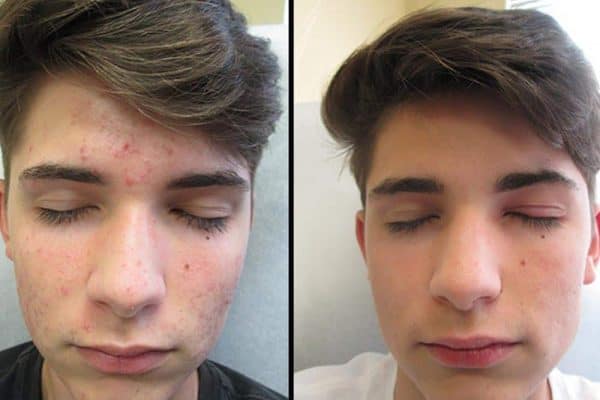
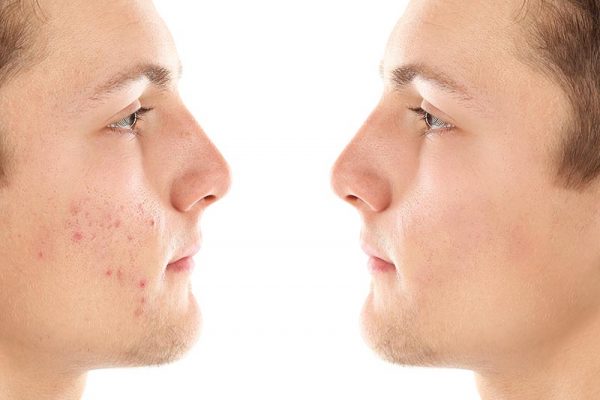
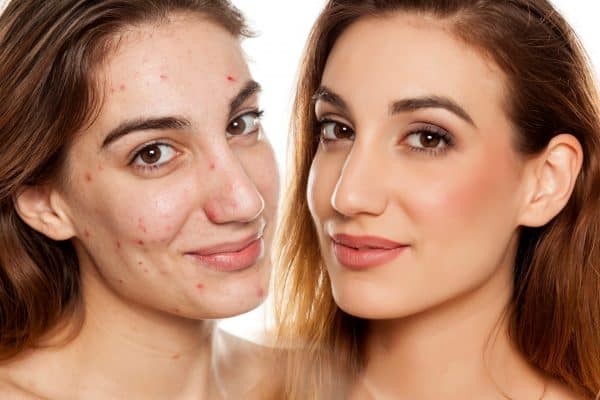
THE DIFFERENT TYPES OF ACNE SCARS
There are many types of acne scars and a person may have a combination of these.
- Ice pick – small, deep holes in the surface of your skin that look like the skin has puncture marks from a sharp object (like an ice pick)
- Boxcar scars – round, square or oval depressions, or craters, in the skin
- Rolling scars – caused by bands of scar tissue that form under the skin. Rolling scars create an indentation in the skin that looks like a wave, due to its wide size and shallow depth.
- Atrophic – flat, thin scars or depressed scars
- Hypertrophic or keloid – thick lumpy scars raised from the skin’s surface.
- Varicelliform– like chicken pox scars
- Papular – scars which appear on the nose and chin. Dr Vishal Madan, Clinic Lead at Everything Skin Clinic has been credited with identifying this form of acne scarring.
TYPES OF ACNE SCAR TREATMENT AT Our Clinic in Cheadle, Manchester
Not all acne scars are alike and an individual with acne will have different types of scars. This means that there is no single best treatment for established acne scars. Each scar and patient receives individual treatment according to the scars and their characteristics. Some of the ways acne scars can be treated include:
MICRODERMABRASION
Microdermabrasion is a skin exfoliating treatment that can be used to treat acne and improve the appearance of the skin. It gets rid of acne by gently removing the outer layer of skin using tiny crystals, leaving the skin looking softer, brighter and stimulating new cell growth. It is great for treating acne. It is a safe and effective procedure that is suitable for both men and women of all skin types. Each treatment takes approximately 45 minutes and a course of 3-6 treatments is usually recommended.
CHEMICAL PEEL
Trichloroacetic acid (TCA) peels aim to improve the texture of the skin and to improve the appearance of superficial acne scars
MICRONEEDLING ACNE TREATMENT
Micro-needling is a non-invasive treatment that uses tiny micro fine short needles on the skin to create tiny injuries. These injuries on the surface of the skin boost the skin to produce new tissue and hence new elastic fibres which give the skin a smoother surface. The treatment is suitable for more textural superficial scars or on areas where the skin is thin.
FRACTIONAL LASER RESURFACING
Fractional laser resurfacing is great to treat acne scars. The treatment rejuvenates the skin by using a laser to deliver small micro-beams to the skin which creates tiny columns of treated tissue amongst the healthy tissue to promote healthy-looking skin.
MINOR SURGERY
In some rare cases, minor surgery in the form of subcision or excision of scars and cysts can be used as a treatment. This surgical treatment removes troublesome cysts if another treatment has not worked.
SUBCISION
We use subcision or “subcutaneous incisionless surgery” for the treatment of rolling scars or depressed atrophic scars. It works by disconnecting the fibrotic strands that tether the skin releasing it and smoothing the surface. The injury is below the surface and induces connective fibre formation below the skin’s surface.
PUNCH EXCISION
This is used to treat mild ice pick scars. The scar is surgically removed and the remaining wound sealed. After the wound heals, it leaves a smoother and more even area of skin.
PUNCH ELEVATION
Used to treat boxcar scars. The base of the scar is surgically removed, leaving the sides of the scar in place. The base is then reattached to the side, but lifted up so it’s level with the surface of the skin. This makes the scar much less noticeable.
INJECTABLES
Dermal fillers, collagen and fat transplantation are methods for treating acne scars. We use these techniques to treat depressed larger scars with fewer defined edges, which are not suitable for other treatments. Some scars are not treatable with punch excision or subcision. In such cases, we use a hyaluronic acid filler or fat to pump the tissue below the skin’s surface.
LASER TREATMENTS FOR ACNE SCARRING
Laser treatment for acne scars has become more popular in recent years. The reason for its popularity is that laser treatment can be used on any skin type, removing the need for surgery or more invasive methods. The laser works by generating pulses of laser light that break down the scar tissue and stimulate new, healthy tissue to form in its place. It’s a straightforward procedure and with little to no downtime following treatment.
CO2 LASER AND FRACTIONAL CO2 LASER
Laser resurfacing is a method of treating scars by removing either a part of the skins surface or full layers of the skin in order to stimulate the production of new skin. It’s used to improve the textural appearance of the skin. We can use different techniques depending on the type and the depth of the scars.
FULLY ABLATIVE LASER TREATMENTS CARBON DIOXIDE LASER – CO2
We use the laser to remove some of the upper layers of the skin to induce a healing response. The laser removes layers of skin at a controlled depth. We remove the outer most layers of the skin to a precise depth this will depend on the type of condition treated. The skin is then allowed to heal and will restructure itself as it grows back. The newly formed skin is smoother and acne scars appear less perceptible.
FRACTIONAL ABLATIVE CO2 LASERS
This technique also uses Carbon dioxide CO2 lasers but delivered in a different way. Fractional lasers deliver the beams in smaller fractions like pixilated beams and remove a very small area of the tissue. This leaves sections of the skin intact. As the skin repairs itself, the healing process is faster. Fractional delivery of the ablative CO2 laser gives the patient less downtime.
COMBINATION TREATMENTS
In many cases, you may require a combination of the above treatments to obtain optimal results. Prior to treatment, you will require a full assessment and consultation to consider the history and the physical appearance of the scars.
FREQUENTLY ASKED QUESTIONS
ARE ACNE SCARS PERMANENT?
Scars are part of the skin’s natural healing process after it has been damaged and in the case of acne, are caused by acne cysts, often worsened by patients picking at spots on the face. Most acne scars will improve over time, however for persistent scarring, we offer a range of treatments to reduce the appearance of scarring such as fractional laser resurfacing and medical skin needling.
WILL ACNE GO AWAY ON ITS OWN?
Acne affects most people at some point during their lives and will usually go away on its own, usually during teenage years. If acne is still prevalent in adulthood, treatment may be needed to help to control acne or to help reduce acne scarring.
HOW LONG DOES IT TAKE TO REMOVE ACNE SCARS?
Treatment times vary depending on the case of acne scars on hand, as well as the treatment plan selected. Micro-needling, for example, can produce visible signs of improvement, within 6-8 weeks of treatment.
HOW LONG WILL THE RESULTS OF SCAR TREATMENT LAST?
Our skin treatments for scars are long-lasting, and often permanent, although in some circumstances you may need repeated treatments in the future.
HEAR FROM OUR PATIENTS
REQUEST A CALL BACK
Please fill in this form and one of our team will give you a call back to arrange a consultation with one of our expert dermatologists.
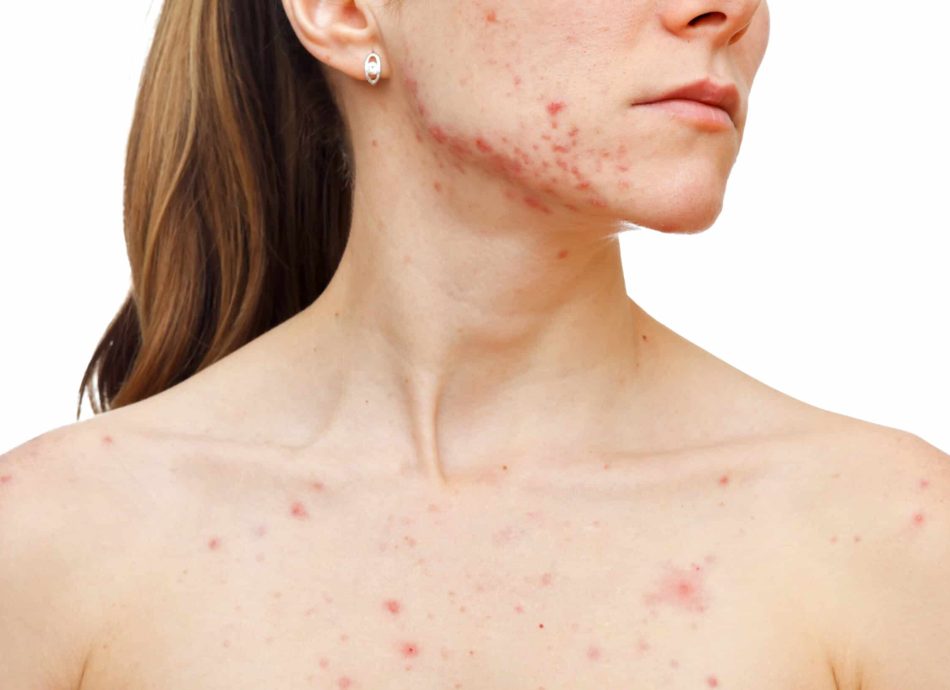
WHY TREAT YOUR ACNE SCARS AT CHOOSE EVERYTHING SKIN CLINIC?
At Everything Skin Clinic™, we have a team of highly trained Consultant dermatologists, who have completed specialist training in Dermatology and are on the specialist register of the General Medical Council. All our consultants hold substantive contracts with the best Dermatology centres in leading NHS hospitals. Therefore, you can be certain of the highest quality private care.
We offer a range of treatments and can offer one, or a combination of treatments to achieve the best results. Unlike many other clinics, we can offer diagnosis and treatment all under one roof by expert consultant dermatologist, so you know you’ll be in safe hands.
ACNE SCAR TREATment PROCESS
Book Acne Assessment
Contact us to arrange a no-obligation consultation with our experienced acne specialist who will examine and discuss your stage of acne scarring.
Appropriate Scar Removal Treatment Identified
There are a wide range of acne treatment options available depending on the severity and location of your acne scars. Our experienced acne dermatologist will explain all of your treatment options and help you to decide the best programme for you.
Treatment Begins
Once an appropriate treatment has been agreed upon, the treatment programme begins, and you’ll be well on your way to a healthier, happier skin, free from acne scarring. Results will likely appear within the timeframe suggested by your acne specialist.
ACNE TREATMENT INSIGHTS AND ADVICE
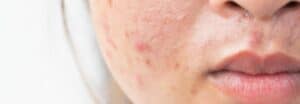
Unmasking Acne: A Thorough Examination for Acne Awareness Month
Acne Awareness Month is globally recognised in June. It serves as an occasion to highlight one of the most prevalent skin conditions across the globe, emphasising the significance of education, assistance and available treatments for individuals dealing with acne. The aim of Acne Awareness Month
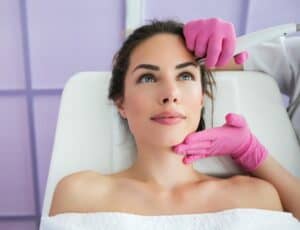
10 Ways To Get Perfect Skin
10 Ways To Get Perfect Skin We all want perfect skin and most of us will stop at nothing to get it. From slathering on creams and serums to the latest and most innovative treatments that you can only get at your doctor’s office, these
